Startup World
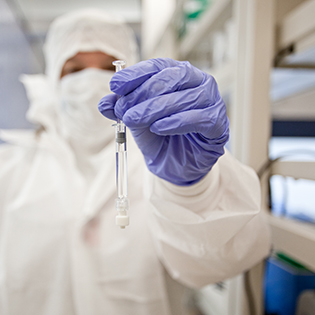
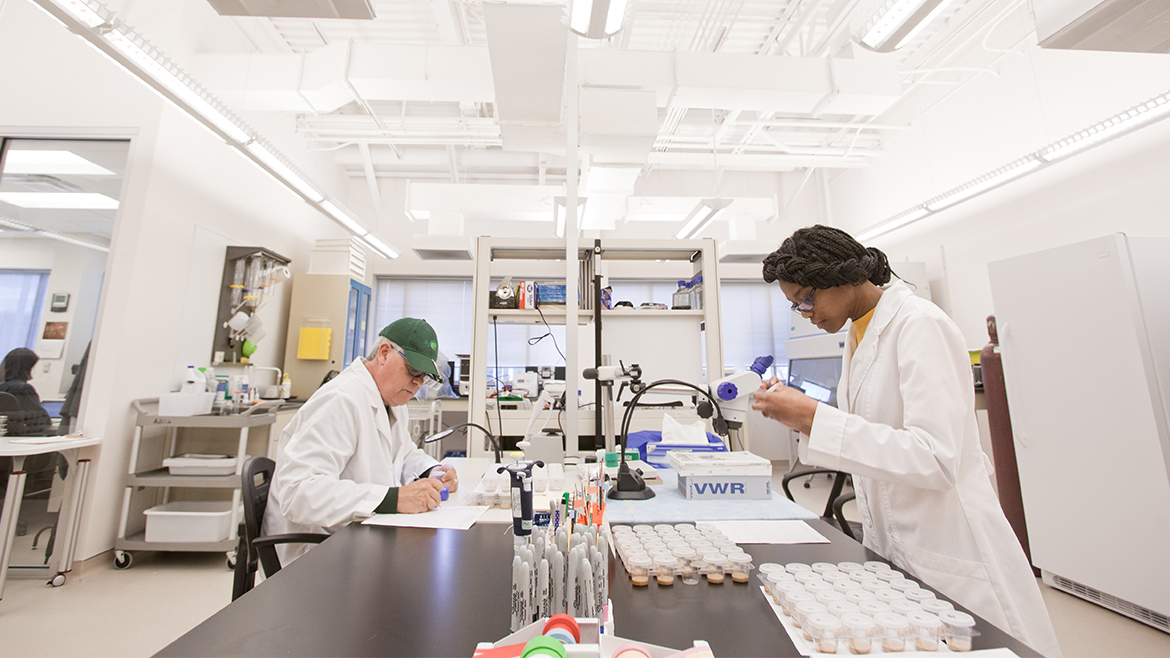
Building Columbia’s entrepreneurship ecosystem.
Chad Haney says there are two kinds of developers — those who want a stable job in an established company with a guaranteed salary and benefits and those who are willing to trade security to work on new, exciting ideas.
Haney and his business partner Anna Swacker started Tin Can Technologies, a custom software development startup, in 2014 to serve other startups and small businesses. They knew that a company just getting off the ground might not have the resources or knowledge to create software and a website worthy of their idea.
Haney wants to hire students interested in software development, train them, and have them focus their work on one Tin Can Technologies client. Haney has posted positions on university job boards and even Craigslist, but he says his company isn’t getting many applicants. Since his business model relies on new talent, a lack of developers could be crippling.
Tin Can Technologies wants to grow, but Haney says they’re having trouble finding developers in the second category to hire. He thinks they’re leaving Columbia for other markets.
For Haney, the problem isn’t a lack of new ideas in Columbia, it’s a lack of connection between startups and new developers.
“There’s a lot of great ideas in Columbia and these ideas aren’t all from developers,” Haney says. “They’re from people who have no development experience and they need those kinds of developers … I think we need to do a better job as a community of keeping those developers engaged and excited and around more.”
Haney says he doesn’t know what will keep developers in Columbia, other than more support for small businesses in general. Like many other startup communities, one of Columbia’s biggest problem areas is funding, especially for companies that are still just an idea.
The Funding Gap
When Missouri Innovation Center CEO Bill Turpin returned to Columbia, home of his alma mater, after 30 years of working in Texas and California, he saw a gap in funding for technology companies. To solve the problem, the MIC is starting the Mid-Mo Tech Accelerator, a $2 million seed fund, to support technology and development companies trying to get an idea off the ground. The money will be invested over three years into companies looking for $25,000 to $100,000. He says it will provide investment for 40 to 50 new companies in the area.
Turpin thinks the accelerator fund can help solve the problem that Haney, and others, identified. More support for the tech community will be a good thing for companies in any sector because developers are essential in almost any kind of business. If Columbia can grow more tech companies, more developers may be attracted to the region.
“We can’t force somebody to stay in Columbia, and that isn’t our intention,” Turpin says. “Our intention, though, is to provide what they need and to build relationships with them. I believe it’s these relationships that ultimately help a company decide whether they want to stay here or not. If they’re getting everything they need and they have strong relationships, there’s a lot less reason to pick up and move.”
Accelerators can help solve a lack of funding for companies looking for a relatively small investment to turn their idea into a business. Since most communities have accelerators, Columbia’s lack of support for companies looking for seed money may be the reason some companies go to Kansas City, St. Louis, or other larger markets.
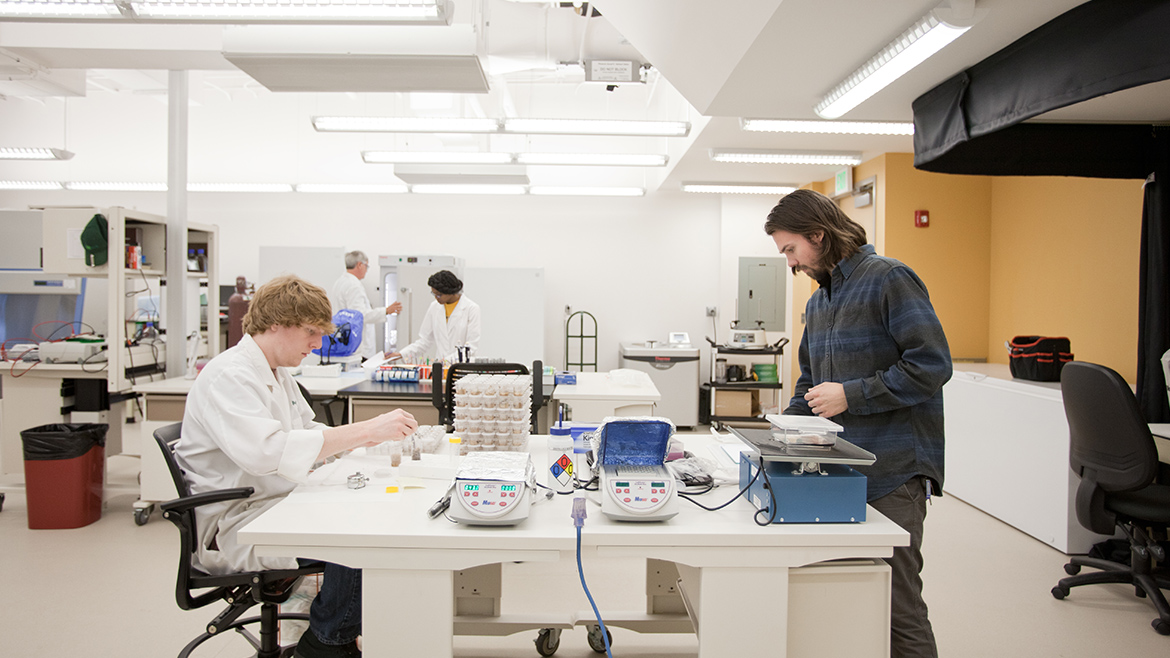
Turpin says there’s a lot of capital in Columbia, but steering it towards new ventures can be difficult. Raising money for the tech accelerator has taken longer than he expected. He says he thinks Midwesterners are less likely to try something that seems risky than people on the West Coast. He says people are friendlier here too, and they might be less likely to give critical advice to a new company.
Later-stage companies that already have revenue and a product can turn to Centennial Investors. The Columbia Chamber of Commerce created CI in 2006 to grow local business. When making investments, the members of CI look for technology or science companies located in mid-Missouri that need between $150,000 to $500,000 in funding.
Outside of investment capital, Columbia needs to find facilities for companies who are outgrowing the space available. REDI President Stacey Button describes the current startup ecosystem as a pipeline.
The universities give students the tools they need to start a company. Columbia College forms the base of the pipeline through its outreach work with high school students and an entrepreneurship major. Ideas become businesses using resources at places like REDI and the MU Small Business and Technology Development Centers. The Downtown Innovation Hub at REDI gives businesses a physical space to work in the early stages; once companies outgrow the Innovation Hub, they can move to the MIC. That’s currently where the pipeline stops, forcing companies to relocate.
Button says one of the community’s goals is to provide a Tier 2 space for those companies to grow and add new employees. Since MIC is the only wet lab space — the type of chemically adapted facility needed for many life sciences startups — in Columbia outside of MU, growing companies are faced with the decision to constrict themselves or leave town.
Button successfully built a Tier 2 facility in Flagstaff, Arizona, where she was the director of economic vitality before coming to Columbia. She says MU and the city have been looking into potential locations and are considering Discovery Ridge for the new facility. There is no timeline for the project yet, but Button says the goal is sooner rather than later.
Connecting the Community
Collin Bunch is a counselor at the Small Business and Technology Development Centers who works one-on-one with companies at any development stage. The SBTDC helps local businesses grow by providing technical support, networking events, and training courses. Within the last 18 months, something in the business community has clicked, he says.
“For the first time maybe ever, Columbia is really on the same page,” he says.
Cooperation between groups like MIC and REDI is making Columbia’s expansive support system for startups an asset, rather than a hard landscape for entrepreneurs to navigate. Bunch remembers a year when Startup Weekend and Hack Mizzou, two events designed to foster entrepreneurship, were on the same weekend. Even though both events were full, he says some people missed the opportunity to do both.
“We never really competed, but sometimes we wouldn’t all communicate,” Bunch says. “We’d be like, ‘Oh, we’re doing this thing’ and they’d be like, ‘Oh, so are we!’”
Bunch, and many others in Columbia, say this change can be chalked up to changes in leadership.
Turpin returned to his alma mater to lead the MIC in June 2014. Button became the president of REDI and director of economic development for Columbia in January 2015. The same month, Raja Bhattacharya became the director of the Fishman Center for Entrepreneurship at Columbia College.
In June 2015, Steve Wyatt, MU’s vice provost for economic development, organized a meeting for the new leadership to get to know each other and discuss potential projects for collaboration. The group, called the Regional Entrepreneurial Ecosystems Committee, outlined three goals for the future. Less than a year later, all three goals have been achieved.
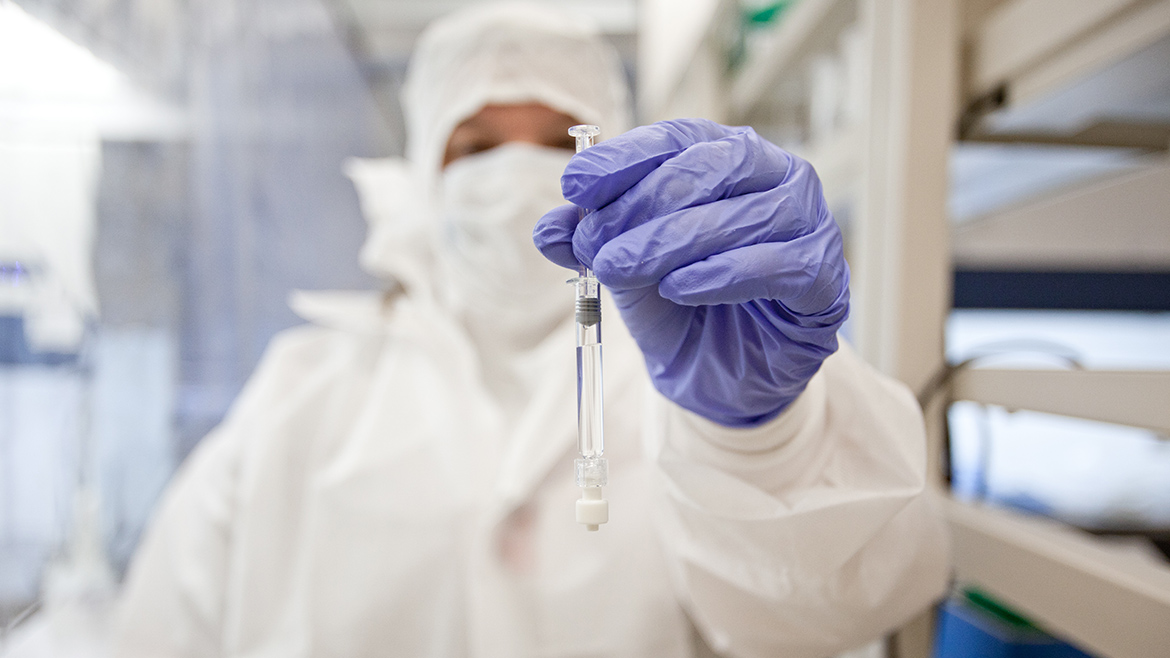
The committee wanted to coordinate the city’s resources to make it easier for entrepreneurs to find the help they needed. They found two ways to do it: an online map and a master community calendar for entrepreneurial events.
The map was inspired by maps of resources from larger communities. The map will help entrepreneurs figure out where they can go for the help they need. The community calendar, which is live on the REDI website, was created to grow a community of entrepreneurs. Anyone can post their events on the calendar.
“We are now coming together as a community much better than when I first got here,” Turpin says. “I think we’ve had some leadership changes, like myself, Stacey Button, Raja [Bhattacharya]. And we all recognize the need to lock arms and do things together more than maybe our predecessors did. Not knocking our predecessors, but the city, the university, everybody benefits when we all work together.”
The committee also decided to create a new event to be held in conjunction with Startup Weekend. In October, “Bringing up Business: Mid-Missouri’s Innovation Week” will directly follow Startup Weekend.
Startup Weekend organizer Heidi Fuhrman says the week will extend the collaborative energy of Startup Weekend. Pitch competitions, product demonstrations, and networking events have been planned. Fuhrman says there are going to be events for entrepreneurs at any stage, whether they’re already a CEO or just have a good idea.
“If you get this amazing group of people who are drivers, who are trying different things together in one building, it’s going to be naturally exciting,” she says. “Whenever you get a lot of creative people involved who are really excited about their ideas and want to meet people who know more than they do about certain areas, it ends up being a lot of fun.”
Creating Relationships
Turpin says having an experienced mentor is the number one success factor for a young company because running a business “is a learn-while-doing thing.”
“You can attend all kinds of lectures, but the lectures don’t mean anything,” he says. “What you need is someone who has been down the road before and knows what to look for.”
MIC started the Venture Mentoring Service in October 2015. The service is modeled after MIT’s successful mentoring program. Turpin and a team traveled to the MIT campus twice to learn about structuring the program and keeping mentors engaged. An entrepreneur can apply online to join the service and gets paired with a group of between two and six experienced business people in the area. The groups are encouraged to meet once a month.
MIC has built a team of over 25 mentors, but is looking for more. Some mentors come from as far as Kansas City and St. Louis for their monthly sessions to advise and encourage new businesses.
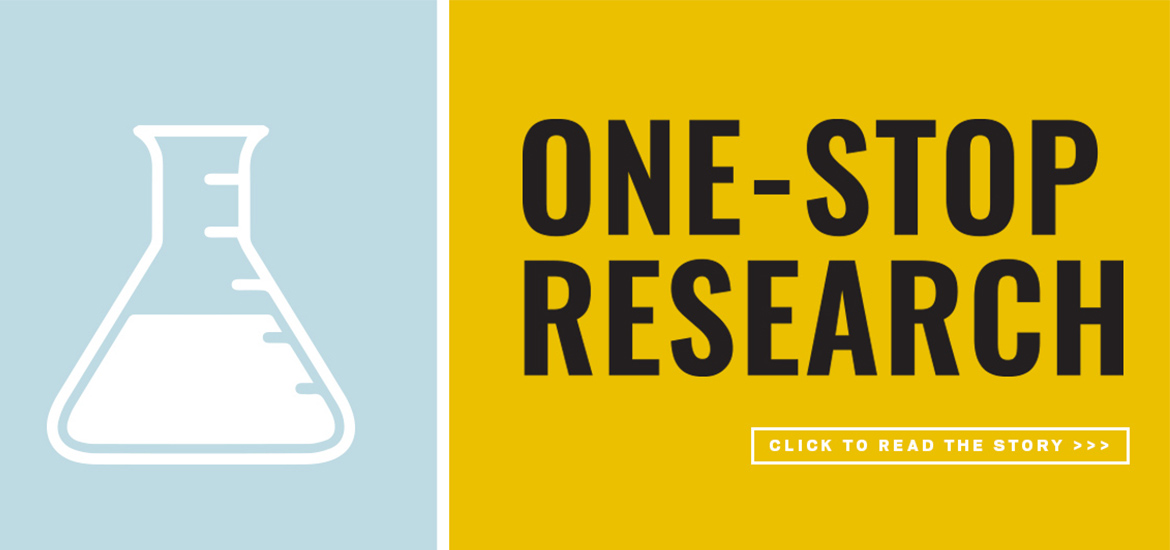
For Columbia entrepreneur Sarah Hill, MIC’s Venture Mentoring Service helped with the nuts and bolts of starting a business. Hill is an experienced journalist and storyteller, having worked for KOMU 8 and Veterans United before launching her own company. She says she was trained to create content but didn’t know the best way to monetize what she produced. Her mentors helped her find solutions to problems she hadn’t encountered before.
Hill is the chief storyteller at StoryUP, a virtual reality company she started in 2015. Her startup is located in the MIC, which provides the resources she and her team need, like office space, equipment, and mentoring.
Hill got involved in the mentoring program when it started last year and says the process of finding a mentor was like “speed dating for startups.” She and her team pitched their idea to a large group of experienced business people from around the state. They were asked to leave the room while the selection committee discussed who would be the best fit for their company.
“I walked out of the room with a handful of valuable people who are providing me advice, guidance, and forethought because they’ve paved the path down before, and now we’re walking on it,” she says.
She was matched with five mentors, who started helping her solve problems immediately. Her original plan was to start a service company that produced virtual reality stories for brands and for journalism. Her mentors strongly advised her to sell a product in addition to providing a service. They told her that service-based companies aren’t as sustainable as those offering a product that can’t be replaced. After receiving the advice, the StoryUP team created an immersive video product, which is currently in the research and development stage at the MIC.
Educating the Next Group of Entrepreneurs
Five years after graduating from MU, Kelsey Meyer is the president of content marketing company Influence & Co., which has over 60 employees and over 180 clients. Even though most of her clients are national or international, Meyer says she can’t imagine being anywhere other than Columbia. She says the relationships she built in college were invaluable in starting her company.
As a kid, Meyer took rocks from her neighbor’s gardens, painted them, and tried to sell them back to the neighbors. In college, she looked to MU’s entrepreneur program, the Entrepreneurship Alliance, for more formal training.
The EA is a course that gets students out of the classroom to experience the realities of entrepreneurship firsthand and develop the skills necessary to become entrepreneurs. EA Director Greg Bier takes students on trips to ziplines and high ropes courses to raise self-confidence and create a tolerance of risk. Acting workshops teach them to engage customers, pitch an idea, and develop thick skin.
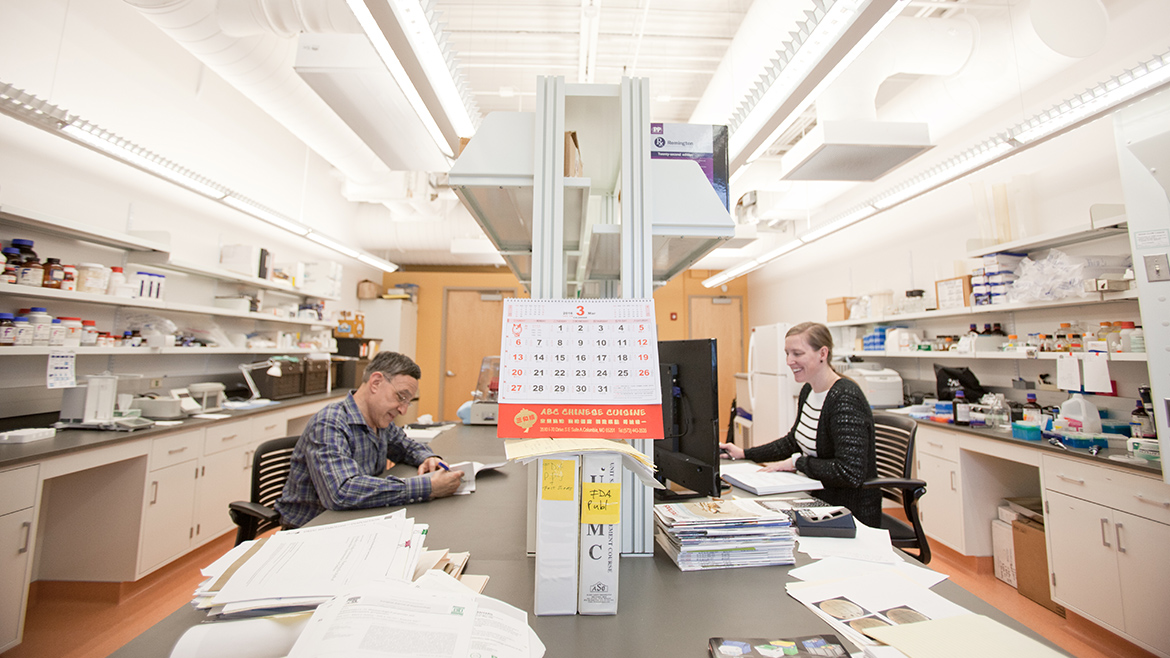
Bier believes in pushing boundaries. He wants to build students’ self-confidence, but he also wants to challenge them to realize what they’re capable of.
“You can’t get somebody to develop a tolerance for risk with a PowerPoint presentation,” he says. “We really want students to experience what it’s like to be uncomfortable. The more I can get them comfortable being uncomfortable, the better. The answers to their questions about their venture are not in a book.”
Colleges contribute to the research and ideas that Columbia startups build on, and they help provide the manpower to get those ideas going — through students, alumni, and professors.
In programs like EA, experienced entrepreneurs teach students how to add value to customers’ lives and create a sustainable business, not just make a profit.
“One of the advantages to Columbia is that it’s a small enough town that you’re comfortable reaching out to people all the time, but it’s big enough that you’ve got such a breadth of experience here,” Bier says. “And they’re all willing to help students.”


